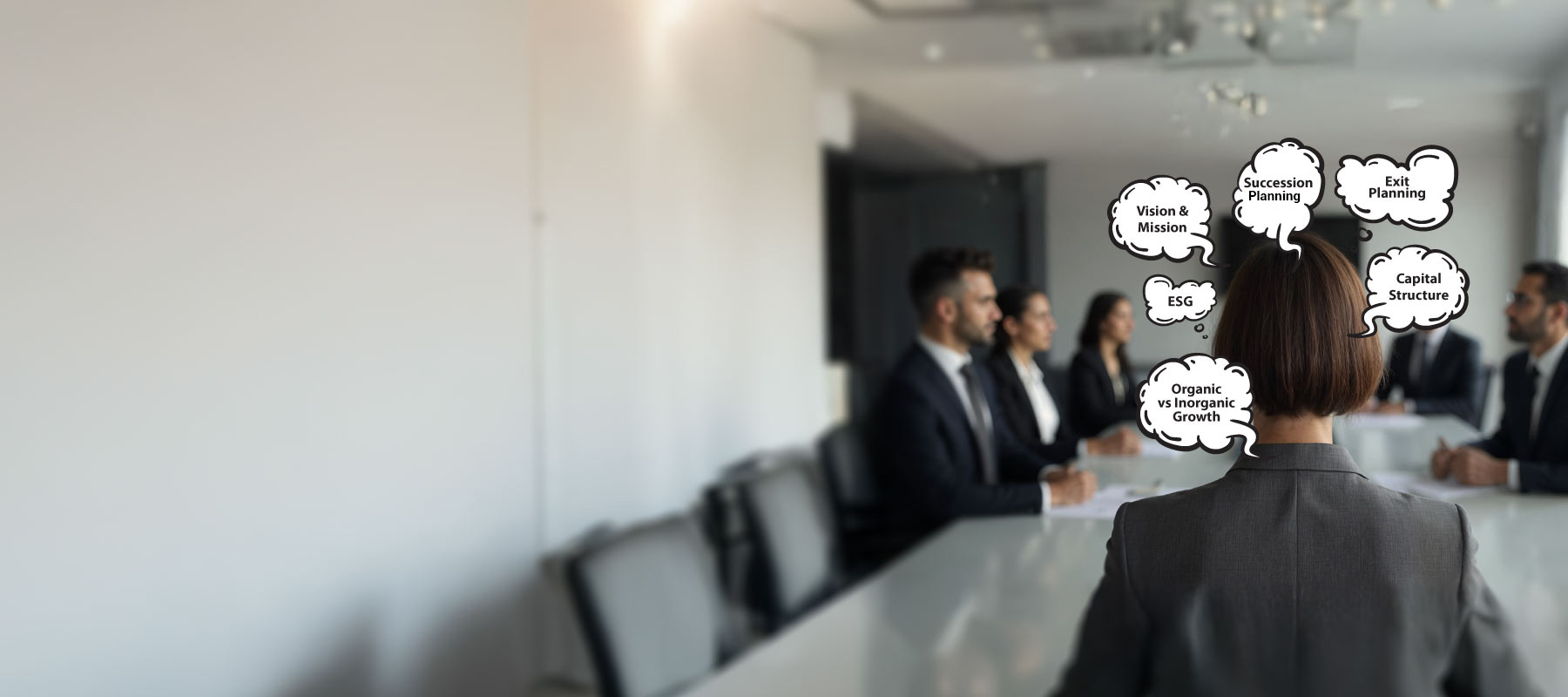
Why family businesses are better equipped to deal with a fractured world
For many years, there has been a perceived clash of values in business practice, between the quest for an ethical and sustainable business model, against the more conventional emphasis upon maximizing financial returns to shareholders. However, recent research reveals that some of the most sustainable and ethical approaches to business turn out to be successful in commercial terms. Conversely, sometimes a quest for maximizing short-term returns ends in scandal and/or bankruptcy.
There is overwhelming evidence that a short-termist business culture, guided predominantly by financial indicators with a bias towards maximizing profit and growth, is failing. It is not only causing social and environmental distress, but is also unsuccessful in pure business terms. It has undermined business and planet sustainability through heightened risk and lack of vision.
A large number of family businesses have avoided the fad for short-term growth maximization, and instead committed themselves to sustainability, adopting an approach that aims to be both principled and long-term. They seek to do the right thing for their business, the communities they serve and the environment. It is a philosophy of partnership, not exploitation. Counterintuitively, it has brought them better financial returns than those of other firms over the last decade, as recent studies have confirmed.
One of the reasons for this is that business-owning families have always treated legacy and the next generation as important. Their view is occasionally expressed as: “for us, a quarter is 25 years”. The most successful ones tend to be conservative on debt and avoid speculation.
They have a mindset closer to the one required for sustainability than that which has overseen the more expansionist, debt-funded business models fashionable in recent decades. For these families, it’s a short step to embrace a 21st-century definition of sustainability, incorporating an understanding of climate change, pressure on resources, protection of habitat and so on.
Achieving the apparent “best of both worlds” – sustainability and strong financial returns – requires considerable discipline at all levels of the organization. It is a different philosophy, and a radically different mindset and business model, to the one that was predominant in the 20th century. It is not just a new set of tactics and competencies. This is the very reason why owners, and in particular owners of family businesses and wealth, are best positioned to achieve this shift.
Seated at the top of the organisation and having concentrated ownership, they have the power and the responsibility of purpose and decisions. They can impose their vision and empower the whole organization to work toward a common, responsible direction to achieve radical change.
They achieve this by observing the following disciplines:
Family values
These include integrity, respect, fairness and a commitment always to honour such principles, irrespective of the pressures faced. They are instilled from a young age.
Stewardship
This involves a sense of duty to ensure the long-term sustainability of the business. It is the inversion of the selfish or entitled approach. To adapt John F. Kennedy, it is a case of seeing “not what the company can do for me, but what I can do for the company”.
Emotional ownership
Intangible but powerful, this creates a strong attachment to the business that results in high levels of commitment and passion. It is nurtured in a business-owning family from a young age.
Patient capital
Successful owners often resist the urge to seek short-term gains. They are prepared to invest in initiatives with a long period of return, as part of a long-term strategy that upholds the family heritage.
Above all, a clear lead and direction from owners is required. While their role involves little day-to-day interference in the business, owners are ultimately accountable. They make the big decisions, set the tone and define the philosophy. They may not do all of these things consciously, but in effect their influence is always considerable.
With the strain put upon societies and the environment by short-termist business models and inequalities in the global economies, radical changes are required in business. All human activity is dependent on the earth’s environment and its natural resources, as well as on peace and fairness. It is essential to consider this responsibility seriously and urgently, given the reality of climate change, the rise of populist political movements, and issues of trust in business and political leaders.
No business or owner is perfect, but there are a significant number who aim for this responsible approach. The corporate world can learn valuable lessons from family businesses, in terms of leading the way as a force for good – for people, our planet and prosperity.
Many family businesses have maintained resilience and market position without sacrificing their initial values or core customers, and by developing close connections with the communities in which they operate. They offer lessons to the broader business community. The 21st century will belong to family businesses and all others ready to embrace the shift in mindset.
Denise Kenyon-Rouvinez, Wild Group Professor and Director, IMD Global Family Business Center
This article was first published by the World Economic Forum.
Research Information & Knowledge Hub for additional information on IMD publications
September 2024 marks a turning point in corporate management and a drama in the management world, which began with an essay by Paul Graham, patron of Silicon Valley's leading startup incubator, Y Combinator.Graham coins a new paradigm, the founder...
Pasona Group, a Japan-based human resources company, is committed to driving social change through business and supporting individuals to find "ikigai” (fulfillment) through work. The company has promoted flexible work and equitable workplaces and...
The case focuses on Decathlon’s journey from 2023 onwards as it seeks to scale its circular business models and transform from a successful pilot phase to large-scale industrialization. Anna Turrell, Decathlon’s chief sustainability officer, is ta...
Entrepreneurial families play a vital role in shaping the global economy and society. These families, engaged in creating and managing businesses across generations, share a commitment to long-term growth, wealth preservation, and legacy building.
In July 2024 Guido Preti, La Marzocco’s sustainability manager, was preparing his three-year plan to combine La Marzocco’s ESG program with that of its new owners, the De’Longhi Group. Since its inception in 1927, the company had relentlessly soug...
This case highlights Ragn-Sells’ remarkable journey from facing financial difficulties to establishing itself as a global authority on the circular economy and sustainability. In 2015, Pär Larshans joined the Swedish waste management company durin...
Research Information & Knowledge Hub for additional information on IMD publications
in I by IMD
Research Information & Knowledge Hub for additional information on IMD publications
in I by IMD
Research Information & Knowledge Hub for additional information on IMD publications
Research Information & Knowledge Hub for additional information on IMD publications
Research Information & Knowledge Hub for additional information on IMD publications
Research Information & Knowledge Hub for additional information on IMD publications
Research Information & Knowledge Hub for additional information on IMD publications
Research Information & Knowledge Hub for additional information on IMD publications
Research Information & Knowledge Hub for additional information on IMD publications
in I by IMD 8 November 2024
Research Information & Knowledge Hub for additional information on IMD publications



